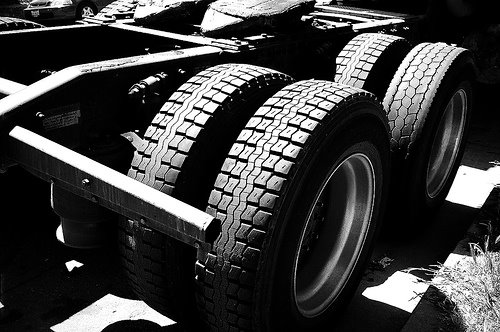Categories
 Fleet managers who want to save money on fuel, reduce greenhouse gas emissions and improve their environmental image should consider becoming a certified partner of the Environmental Protection Agency’s (EPA) SmartWay Program. Participation in the EPA’s program is completely voluntary and helps fleet operators and truck drivers to save fuel, save money and help the environment at the same time. Sounds like a win-win for fleets looking to cut costs and go green at the same time. The SmartWay program is a collaboration between the freight industry and the federal government to reduce air pollution and greenhouse gas emissions, improve fuel efficiency and strengthen the freight industry as a whole.
Fleet managers who want to save money on fuel, reduce greenhouse gas emissions and improve their environmental image should consider becoming a certified partner of the Environmental Protection Agency’s (EPA) SmartWay Program. Participation in the EPA’s program is completely voluntary and helps fleet operators and truck drivers to save fuel, save money and help the environment at the same time. Sounds like a win-win for fleets looking to cut costs and go green at the same time. The SmartWay program is a collaboration between the freight industry and the federal government to reduce air pollution and greenhouse gas emissions, improve fuel efficiency and strengthen the freight industry as a whole.
The EPA’s SmartWay program identifies products and services that that reduce transportation related costs and emissions such as carbon dioxide and nitrogen oxide. Certification in the SmartWay program requires fleet vehicle operators to use verified low rolling resistance tires, such as GoodYear’s Fuel Max technology tires or Dunlop’s FM series. According to GoodYear, both of these lines of tires can improve fuel efficiency by up to 4%.
For fleet managers that have vehicles in the state of California, partnering with the EPA is a smart decision because going through the process can help a fleet to meet recent regulations enforced by the California Air Resources Board (CARB). CARB requires fleets operating in California and using 2011 model year tractors or straight trucks that pull 53-feet or longer box type trailers, to use specific SmartWay verified fuel efficient technologies such as low rolling resistance tires.
The low rolling resistance tires must be installed on the trucks and the trailers as well, if they are 2011 models or newer. CARB regulations also set deadlines for retrofitting 2010 and older straight trucks, tractors, vans, and box-type trailers with low rolling resistance tires. All fleets, regardless of where their vehicles are registered, must comply with the regulation when they operate their vehicles on roads and highways in the state of California.
Improved fuel economy is not the only benefit of using low rolling resistance tires. Installing these tires can help fleet owners to protect themselves from the financial consequences of non-compliance. Not only can CARB impose steep fines on fleet operators, but it can also hold CA based freight brokers and shippers that employ truck drivers equally responsible.
In order to choose the right low resistance rolling tires, fleets should be gathering data on key statistics such as remaining life on existing tires. Fleet managers can use this type of information to determine which tires they should choose or which vehicles should have their tires replaced first.






